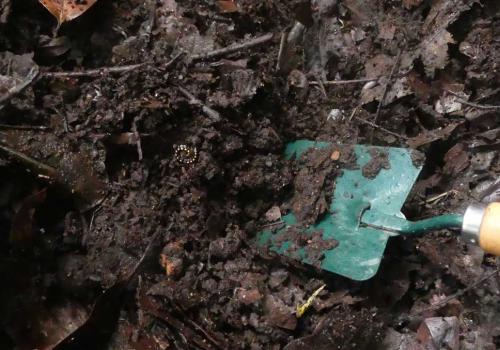Sri Lanka is planning to import organic fertilizer for 500,000 hectres of paddy land and 600,000 hectares of other crops for the next main cropping season, following a ban on chemical fertilizer the government said. Authorities have said chemical fertilizer was banned to reduce negative health effects and save 400 million dollar a year spent on imports. The cabinet of ministers had given the nod for state fertilizer companies to call international bids to import enough organic fertilizer for 500,000 hectares of paddy for the 2021/22 Maha cultivation season. Usually about 800,000 hectares of paddy are sown in the season. The fertilizer would be distributed through the Department of Agrarian Services. For 600,000 hectares of other crops licensed suppliers will be allowed to import organic fertilizer as recommended by the research institute dealing with the crop. For ornamental plans, cut flowers and soil-less agriculture, identified specialist fertilizer would allowed through a licensing system.
The sudden ban on chemical fertilizer came through Sri Lanka’s mid-night gazette just as some enterprising individuals were moving into soil-less agriculture and hydroponics. The ban came after the mis-use of fertilizer which was given free after 2005 to fulfill Sri Lanka’s ‘policy-by-manifesto’ system of regime uncertainty. Critics say the subsidized fertilizer discouraged modern advances in fertilizer from reaching the country and also the use micro-nutrients which is in widespread use in East Asia and advanced nations. However under the current plan micro-nutrients would be allowed. A special procurement committee would be set up for organic fertilizer and chelated plant micro-nutrients along with a special advisory committee. The statement said out of 27 licensed domestic organic fertilizer producers, 10 could supply enough fertilizer for 224,000 hectares and farmers themselves would supply organic fertilizer for anoher 100,000 hectares. Concerns have been raised that Sri Lanka’s agricultural output would fall sharply with the use of organic fertilizer whose quality varies more widely than chemical fertilizer and it is tricky to use them to good effect in all crops.
Experts have called for quality controls of chemical fertilizer and modern methods of chemical fertilizer application which minimizes use, run off and boosts output. True organic fertilizer are much more expensive and need to applied in large quantities. “To be certified organic, most inputs should come from certified organic sources, which further limits sources and makes them even more expensive,” Ranil Waliwitiya, a Sri Lankan-born Canadian who run a fertilizer tech company has said. “As an example, conventional urea with 46 percent nitrogen can be bought at USD0.88 per 1 kg while an organic plant-based product with 12 percent nitrogen (this is the highest percentage of plant-based organic nitrogen available) is about USD12.00 per 1 kg. “Therefore to get the same percentage of nitrogen in urea, you have to spend nearly USD50.00 if going with organics. In this case, it is 50 times more expensive to choose organic nitrogen. ”
Organic fertilizer could also has dangerous residues. “Unlike conventional fertilizers, organic fertilizers can contain many unknown compounds which may accumulate in soil and plants and cause detrimental plant growth and human health issues,” he explained. “As they comprise of many different sources and available mainly as solids, it may not be possible to correct nutrient deficiencies quickly in an organic setting. These compounds have poor solubility.”
